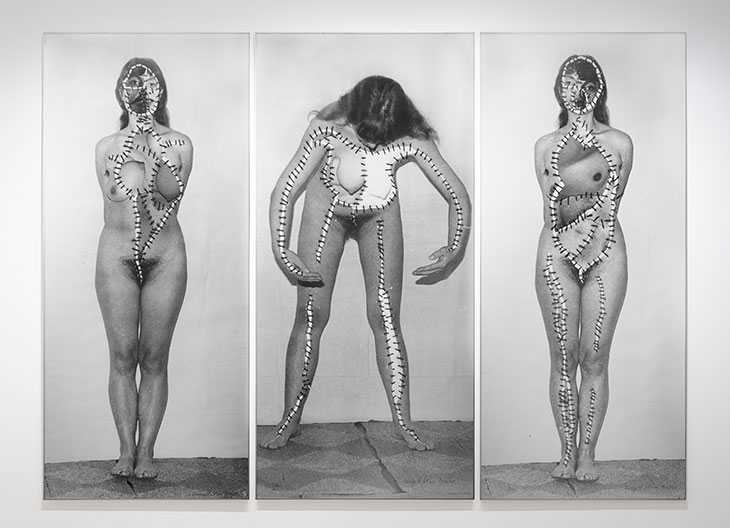Recent years have seen a number of books, both fiction and non-fiction, published on the subject of motherhood: Anna Prushinskaya’s A Woman is a Woman Until She is a Mother, Deborah Levy’s memoir The Cost of Living, Chris Power’s collection Mothers, and Sheila Heti’s Motherhood, whose narrator, ahead of her 37th birthday, grapples with the idea of whether or not to have a child. It’s not just in the literary world that motherhood is a hot topic – in 2020 there are a crop of exhibitions dedicated to the subject. This month in London, the Foundling Museum stages ‘Portraying Pregnancy’, which looks at the pregnant female body in works from the 15th century to the present day – including Chantal Joffe’s self-portrait from 2004 – and Richard Saltoun presents the second instalment of its two-part exhibition on the politics of mothering. The group show ‘Maternality’, featuring Eleanor Antin, Annegret Soltau and Judy Chicago among others, draws on the etymological root of the word ‘mother’ and the broader experience of the maternal body. In Denmark in the autumn, Louisiana Museum of Modern Art hosts ‘MOTHER!’, a sprawling exhibition focused on the mother figure and its evolution in art throughout the 20th and 21st centuries.
Körper – Eingriffe (schwanger) (‘Body intervention (pregnant)’; 1977/78), Annegret Soltau. Courtesy Richard Saltoun Gallery, London; © Annegret Soltau

Further depictions of the body, more broadly considered, can be found at the Whitechapel Gallery in February. ‘Radical Figures: Painting in the New Millennium’ draws attention to what the gallery is calling ‘a new direction in painting’ and features the work of artists taking a fresh approach to this traditional medium – among them Tschabalala Self and Michael Armitage. The latter, who is showing eight of his enigmatic oils at MoMA until 20 January, is also preparing for a solo show at the Haus der Kunst in Munich in July. In New York, painting will be very much alive in the New Museum’s exhibition of the young artist Jordan Casteel, whose figurative works – large, colourful canvases that teem with minute detail – engage with the big themes of race, class, and identity (19 February–24 May). This is the artist’s museum debut in New York and confirms her status as a painter worth watching. Unlike Casteel, Lynette Yiadom-Boakye paints imaginary figures, and around 80 of her works, which ambitiously engage with the history of European portraiture, will be brought together in a major solo exhibition at Tate Britain in May.
It’s also a good year to see works by multimedia artists who examine the often-turbulent histories of their native countries. Thao Nguyen Phan takes Vietnam as her backdrop in videos, paintings and installations that have storytelling at their centre. In June, the Chisenhale Gallery in east London presents a new film commission, Becoming Alluvium, which continues Phan’s research into the Mekong river: it marks the artist’s first solo exhibition in a UK gallery. Also in London, the Mumbai-based artist Shilpa Gupta, whose work often explores borders and belonging, takes over the Barbican’s Curve Gallery in the autumn. Finally, don’t miss the wide-ranging, experimental works of the Otolith Group at the Irish Museum of Modern Art in Dublin October. Expect to rethink what film-making is and can be in this large-scale presentation of eight films and two installations.
Within Reach (2019), Jordan Casteel. Courtesy Casey Kaplan, New York



